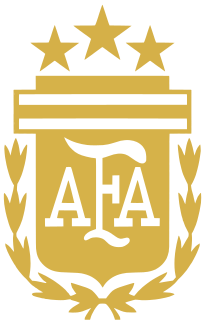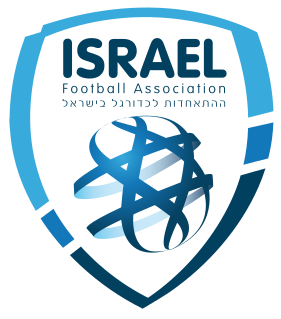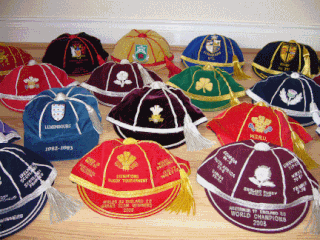
The England men's national football team represents England in men's international football since the first international match in 1872. It is controlled by The Football Association (FA), the governing body for football in England, which is affiliated with UEFA and comes under the global jurisdiction of world football's governing body FIFA. Also known as The Three Lions, England competes in the three major international tournaments contested by European nations; the FIFA World Cup, the UEFA European Championship and the UEFA Nations League. England is one of only eight nations to have been crowned world champions, having won the 1966 World Cup.

Association football, more commonly known as simply football or soccer, is a team sport played by all genders with a spherical ball between two teams of 11 players. It is played by approximately 250 million players in over 200 countries and dependencies, making it the world's most popular sport. The game is played on a rectangular field called a pitch with a goal at each end. The object of the game is to outscore the opposition by moving the ball beyond the goal line into the opposing goal. The team with the higher number of goals wins the game.

The France national football team represents France in men's international football and is controlled by the French Football Federation, also known as FFF, or in French: Fédération française de football. The team's colours are blue, white and red, and the coq gaulois its symbol. France are colloquially known as Les Bleus. They are the reigning world champions, having won the most recent World Cup final in 2018.

The Argentina national football team represents Argentina in men's international football and is administered by the Argentine Football Association, the governing body for football in Argentina. Argentina's home stadium is Estadio Monumental Antonio Vespucio Liberti in Buenos Aires.

The Scotland national football team represents Scotland in men's international football and is controlled by the Scottish Football Association. It competes in the three major professional tournaments, the FIFA World Cup, UEFA Nations League and the UEFA European Championship. Scotland, as a country of the United Kingdom, is not a member of the International Olympic Committee and therefore the national team does not compete in the Olympic Games. The majority of Scotland's home matches are played at the national stadium, Hampden Park.

The Spain national football team represents Spain in international men's football competitions since 1920. It is governed by the Royal Spanish Football Federation, the governing body for Football in Spain.
The Lithuania national football team represents Lithuania in international football and is controlled by the Lithuanian Football Federation, the governing body for football in Lithuania. They played their first match in 1923. In 1940, Lithuania was occupied by the Soviet Union; the country regained its independence in 1990 and played their first match thereafter against Georgia on 27 May of that year.

The Uruguay national football team represents Uruguay in international football, and is controlled by the Uruguayan Football Association, the governing body for football in Uruguay. The current head coach is Óscar Tabárez. The Uruguayan team is commonly referred to as La Celeste.

The Luxembourg national football team is the national football team of Luxembourg, and is controlled by the Luxembourg Football Federation. The team plays most of its home matches at the Stade Josy Barthel in Luxembourg City.

The Israel national football team represents Israel in international football, and is governed by the Israel Football Association (IFA).

The Japan national football team, nicknamed the Samurai Blue (サムライ・ブルー), represents Japan in men's international football and it is controlled by the Japan Football Association (JFA), the governing body for football in Japan. The head coach is Hajime Moriyasu, who is also the coach of the Japan U-23 team.

The Nigeria national football team represents Nigeria in men's international football. Governed by the Nigeria Football Federation (NFF), they are three-time Africa Cup of Nations winners, with their most recent title in 2013. In April 1994, the Nigerian national football team was ranked 5th in the FIFA rankings, the highest FIFA ranking position ever achieved by an African football team. Throughout history, the team has qualified for six of the last seven FIFA World Cups, missing only the 2006 edition and reaching the round of 16 on three occasions. Their first World Cup appearance was the 1994 edition. The team represents FIFA and Confederation of African Football (CAF).

The Georgia national football team represents the country of Georgia in men's international football matches, and it is controlled by the Georgian Football Federation. The Georgian team's first match took place in 1990, while Georgia was still part of the Soviet Union. The team have attempted to qualify for each major tournament from Euro 1996 onwards, but have not achieved qualification yet. Home games are played at the Boris Paichadze Dinamo Arena in Tbilisi.

The Ivory Coast national football team, represents Ivory Coast, formally the Republic of Cote d'Ivoire, in men's international football. Nicknamed the Elephants, the team is managed by the Ivorian Football Federation (FIF). Until 2005, their greatest accomplishment was winning the 1992 African Cup of Nations against Ghana on penalties at the Stade Léopold Sédar Senghor in Dakar, Senegal. Their second success came in the 2015, again defeating Ghana on penalties in Bata, Equatorial Guinea, The team represents both FIFA and Confederation of African Football (CAF).
The Liberia national football team, nicknamed the Lone Stars, represents Liberia in men's international football and is controlled by the Liberia Football Association. Although the nation produced the 1995 FIFA World Player of the Year, George Weah, its football team has never qualified for the FIFA World Cup and has qualified for the Africa Cup of Nations just twice—in 1996 and 2002. It is a member of both FIFA and the Confederation of African Football (CAF).

In sport, a cap is a metaphorical term for a player's appearance in a game at international level. The term dates from the practice in the United Kingdom of awarding a cap to every player in an international match of association football. In the early days of football, the concept of each team wearing a set of matching shirts had not been universally adopted, so each side would distinguish itself from the other by wearing a specific sort of cap.

The Australian Football League (AFL) is the pre-eminent and only fully professional men's competition of Australian rules football. Through the AFL Commission, the AFL also serves as the sport's governing body and is responsible for controlling the laws of the game. Originally known as the Victorian Football League (VFL), it was founded in 1896 as a breakaway competition from the Victorian Football Association (VFA), with its inaugural season commencing the following year. The VFL, aiming to become a national competition, began expanding beyond Victoria to other Australian states in the 1980s, and changed its name to the AFL in 1990.

The Netherlands national football team has represented the Netherlands in international men's football matches since 1905. The national team is controlled by the Royal Dutch Football Association (KNVB), the governing body for football in the Netherlands, which is a part of UEFA, and under the jurisdiction of FIFA. They are widely considered one of the best teams in world football. Most of the Netherlands' home matches are played at the Johan Cruyff Arena and the Stadion Feijenoord.

The men's football tournament at the 2020 Summer Olympics has been postponed to 23 July to 8 August 2021, due to the COVID-19 pandemic. Previously, the games were planned to be held from 23 July to 8 August 2020. However, their official name remains 2020 Summer Olympics. It will be the 27th edition of the men's Olympic football tournament. Together with the women's competition, the 2020 Summer Olympics football tournament will be held in six cities in Japan, including the Olympic host city, Tokyo. The final will be hosted at the International Stadium in Yokohama. Teams participating in the men's competition are restricted to under-24 players with a maximum of three overage players allowed. The men's tournament is typically restricted to under-23 players, though following the postponement of the Olympics by a year, FIFA decided to maintain the restriction of players born on or after 1 January 1997.
















